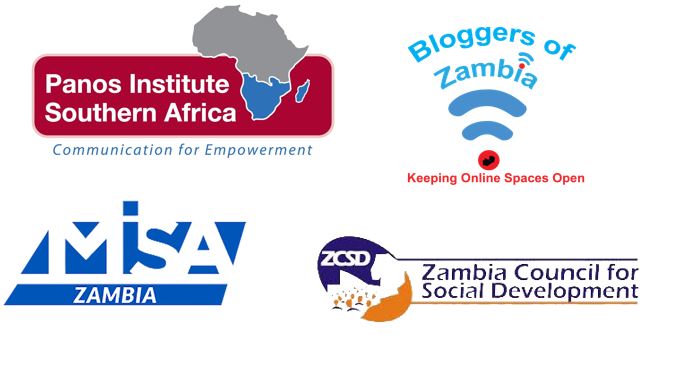
Civil Society Working Group Urges Government to Uphold the Right to Freedom of Expression in the Digital Sphere
Lusaka, 19 June 2020. The Working Group on Cyber Laws in Zambia is concerned with government officials’ threats and malice to curtail citizens using social media platforms to exercise their freedom of expression.
The right to free expression is guaranteed under Article 20 of the 2016 amended Constitution. It is enshrined in regional and international human rights instruments such as the African Charter on Human and People’s Rights to which Zambia is a signatory.
In addition to this, Zambia has ratified and is party to the International Covenant on Civil and Political Rights (ICCPR), among other international instruments. Article 19 of the ICCPR guarantees the right to freedom of expression and provides that “Everyone shall have the right to freedom of expression; this right shall include freedom to seek, receive and impart information and ideas of all kinds, regardless of frontiers either orally, in writing or in print, in form of art, or through any other media of his choice.”
Domestically, our Zambian Constitution protects the rights to freedom of expression under Article 20 which states that “Except with his own consent, no person shall be hindered in the enjoyment of his freedom of expression, that is to say, freedom to hold opinions without interference, freedom to receives and information without interference, freedom to impart and communicate ideas and information without interference, whether the communication be to the public generally or to any person or class of persons, and freedom from interference with his correspondence.”
Contrary to allegations by some government officials who have spoken against citizens’ use of online platforms to raise issues of public interest, our view is that citizens harnessing social media to engage their democratically elected leaders is not abuse of the digital platforms.
In a democratic country like Zambia, citizens have the right to hold leaders to account on the manner they are managing the affairs of the country, through means or channels of their choice, including online or social media.
Intimidating or attempting to silence citizens who use online platforms to speak out goes against the democratic principles on which our nation stands, as it stifles the online civic space, and infringes on citizens’ right to freedom of expression, peaceful assembly and association online.
In view of the efforts to discredit social media, stakeholders who perceive the proposed cyber laws are meant to stifle online rights and freedoms may have reason to have the fears about pending internet regulations and social media tariff.
Instead of instilling fear in the citizens who are expressing their views and opinions on governance matters using online platforms, the government must work with stakeholders to guarantee and protect citizens’ online rights and freedoms. The government and all of us must encourage the use of technology to enhance our growing democracy.
Issued by:
Nervious Siantombo, Programmes Manager
Panos Institute Southern Africa, on behalf of the Working Group on Cyber Laws and Digital Security in Zambia
Notes for the Editor
The Working Group on Cyber Laws and Digital Security in Zambia is a consortium of Civil Society actors advocating for human rights-based internet legislation in Zambia. The Working Group members are Panos Institute Southern Africa, Bloggers of Zambia, and Zambia Council for Social Development, and the Media Institute Southern Africa (MISA). With support from Deutsche Gesellschaft für Internationale Zusammenarbeit (GIZ) GmbH, the Working Group is currently implementing the “Zambian Civil Society Advocating for their space in the Digital Sphere in Zambia” project.